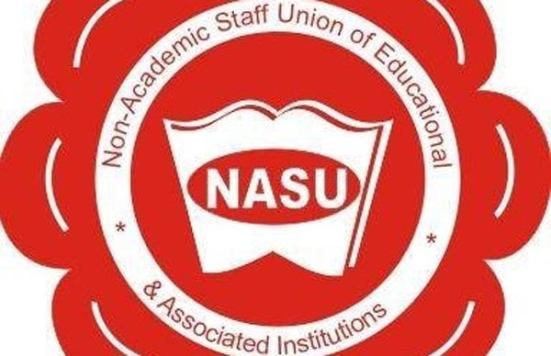The Non-Academic Staff Union of Educational and Associated Institutions (NASU) says it will begin a 14-day warning strike in federal universities, polytechnics and colleges of education over shortfall in payment of its members’ salaries.
In a statement issued in Abuja on Monday, Peters Adeyemi, general-secretary of NASU, said the move was to protest the short-payment of its members’ salaries since February 2020 through the Integrated Payroll and Personnel Information System (IPPIS).
According to him, the union has already issued notice of warning having fulfilled all the statutory requirements.
The NASU general-secretary said the association has also placed all its members in the federal universities and intra-university centres, federal polytechnics and federal colleges of education on a 14-day warning strike.
Adeyemi said that the strike notice has been conveyed to its members during the weekend through a letter with reference number NASU/CD/307/209.
He added that the strike takes effective from the date of the resumption of work in all the mentioned institutions, after which the union would assess government’s response to its complaints.
He, however, noted “an indefinite strike will follow if positive action is not taken to remedy the situation.”
“We have raised issues in dispute to include non-payment of salaries to some staff, short payment salaries to some staff, failure to pay approved allowances as contained in the FGN/NASU year 2009 agreement,” he said.
“Others are, non-deduction of check-off dues, and non-deduction of cooperative and other deductions of its members in the Federal Universities and inter-university centres, Federal Polytechnics and Federal Colleges of Education.
“We have also stated in the petition that various steps aimed at resolving the crisis have failed.”
Reacting to NASU’s statement, Henshaw Ogubike, director, information, press and public Relations, OAGF, dismissed claims of deductions in salaries of staff of tertiary institutions over IPPIS.
“This office is not unaware that there are bound to be teething challenges arising from migration of tertiary institutions onto IPPIS platform,” he said.
According to him, the situation “requires the cooperation and understanding of all the tertiary institutions to enable us effect the necessary corrections as quickly as possible.”
“On the completion of this process, the issue of payment of consequential arrears can be meaningful and realistic to ensure that there is no overpayment or underpayment arising from the payment,” he added.
Copyright 2024 TheCable. All rights reserved. This material, and other digital content on this website, may not be reproduced, published, broadcast, rewritten or redistributed in whole or in part without prior express written permission from TheCable.
Follow us on twitter @Thecablestyle

